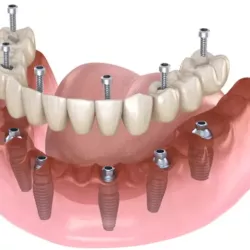General, Federal And State Regulations Of E-Cigarette
The rules and regulations regarding the manufacturing and distribution of electronic cigarettes or e-cigarettes usually vary across states and countries. Few states have a few regulations put to it while others have no regulations at all. There are even a few stricter states that ban such e-cigarettes completely.
However, most of the states have introduced strict restrictions on different countries now following suit. Few countries have even licensed these devices as medicines.
By 2015, it was found through different surveys that almost two-thirds of all major nations of the world have imposed some regulations on e-cigarettes in some way or the other. However, the legislation regarding electronic cigarettes is debated in several countries. This is due to the potential relationship with medical drug policies and the tobacco laws.
The manufacturing companies of e-cigarettes have constantly been pushing the government in their region to formulate laws that will support and serve their business interests. However, governments are maintaining their strict stance considering the side effects these electronic cigarettes may have on human health and the growing interest and use of these cigarettes among adolescents.
The new laws
In 2016 the US Department of Transportation has banned the use of these e-cigarettes on the commercial flights to and fro.
- In December the same year, HUD also passed a rule that prohibited the use of any prohibited tobacco products in any common area, public places and even in each home unit. This ban is even extended further within the next 18 months from the outside of any building to 25 feet from any public housing.
- This ban by HUD affected more than 700,000 units that included almost 500,000 for the elderlies. This rule was however designed with the belief that it will reduce the overall maintenance costs and at the same time will lower the risk of devastating fires. It was also formulated to benefit the overall health of the community and staff and to help improve the indoor air quality. However, these rules regarding prohibited tobacco products are being reevaluated as warranted.
HUD, however, did not include electronic cigarettes in their list of prohibited tobacco products. On the contrary, they left it for the public housing agency to decide on the use of electronic cigarettes. The ban is usually on cigarettes and cigars, pipes and hookahs or water pipes only. The fact that electronic cigarettes did not carry any maintenance cost savings resulted in its exemption. Moreover, there was no conclusive proof or evidence available for the HUD to state that vapor produced by these electronic cigarettes caused any damage to the units.
The legal status
The legal status of electronic cigarettes is lying pending currently in many countries while on the other hand; several countries have already banned the use of e-cigarettes. In these countries, it is technically illegal to sell these as it contains nicotine which is harmful to human health. In other countries, the sale of electronic cigarettes is restricted to adults only.
- There are even a few more countries in which the Food and Drug Administration extends its regulatory power to these e-cigarettes. According to this FDA ruling, certain issues are to be evaluated such as the ingredients used to make this product and the health risks. It will also consider the appeal of the product to non-users as well as minors which are banned by the FDA.
- The rule states that all buyers will have to provide a valid and authentic photo ID proof to buy an e-cigarette.
- The rule also states that vending machines are not permitted for the sale of electronic cigarettes to all-ages.
- The FDA used its discretionary power under the Family Smoking Prevention and Tobacco Control Act and labeled e-cigarette devices as well as e-liquids as tobacco products. This means the FDA will have regulatory power in its manufacturing and labeling whether it is the liquid or the device on the whole.
- The law also states that any vape shop that mix e-liquids or modify devices will be considered as manufacturing sites of electronic cigarettes. That means these shops will have to get them registered with the FDA and comply with the good manufacturing practice regulation.
Role of the e-cigarette companies
With so many rules and regulations imposed by the government as well as the FDA, the electronic cigarette and tobacco companies feared a low turnover and recruited several lobbyists in an effort to prevent such ruling from the FDA. As it is, this ruling not only involved evaluating the electronic cigarette products but also banned the already existing products on the market, which ideally is the primary concern of the electronic cigarette manufacturing companies.
Standardization and quality control
Later, there were several other laws and regulations imposed on electronic cigarettes by governments of different countries and The FDA. Regulations were passed to standardize liquids and vaporizers and for its quality control as well.
Regulations were also made very strict regarding the disclosure of ingredients used to manufacture the e-liquids. In addition to that, there were specific laws made to ensure child-proofing and tamper-proofing for these e-liquid packaging.
The FDA published all proposed regulations for electronic cigarettes and along with it imposed a few taxes on e-cigarettes in different states considering it to be a tobacco product. On the other hand, different regional and state governments took the initiative to broaden their smoking bans within their jurisdiction and included electronic cigarettes in their list of banned tobacco products.
Sale of e-cigarette to minors is strictly banned as these are listed as drug delivery devices because it contains nicotine in the e-liquid. However, in the US, television advertising is not restricted as these electronic cigarettes do not contain tobacco. On the other hand, countries that have regulated these cigarettes as a medical product, however, have not approved these as an aid to smoking cessation.
Therefore, if you buy an electronic cigarette and think of smoking it in public, make sure you know about the rules and regulations that govern your purchase and smoking of e-cigarettes.
More to Read:
Previous Posts:


